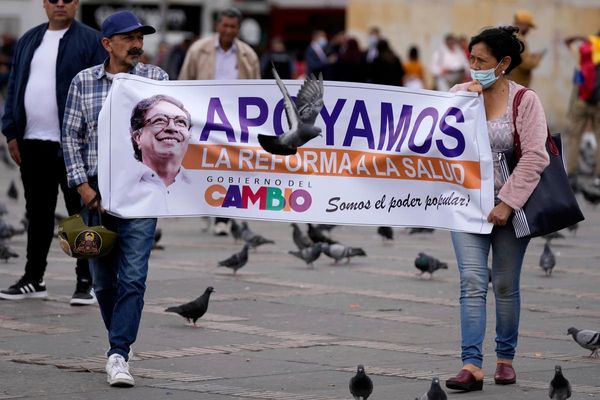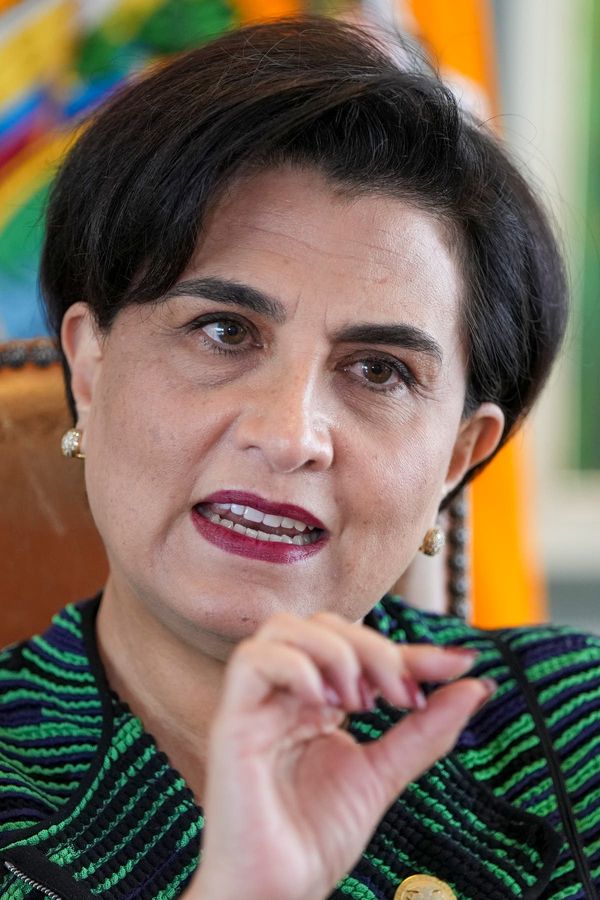
Nahal Oz, a kibbutz in southern Israel which is home to about 400 people, is so close to the Gaza Strip that the nearest Palestinian house in Sajaiya is just 600 metres away. Despite the hi-tech fences and buffer zone that separates them, the neighbours can see each other hanging the washing on the line.
Until the late 1980s, older members of Nahal Oz used to regularly drive a few miles west, to shop in Gaza City’s markets, eat the enclave’s famous seafood, or go for a walk on the Mediterranean coastline. Many still have friends in Gaza. Despite the Israeli blockade imposed in 2007, after the militant group Hamas seized control of the area, they kept in touch with calls and WhatsApp messages.
Recently, the community began work on a visitor centre for those wanting to learn more about the kibbutz ethos of sustainability and a pastoral way of life. A listing on a kibbutzim website wondered whether the neighbours from Sajaiya would one day also be able to visit. After the events of the last three days, in which Hamas militants slaughtered more than 700 Israelis in 20 places across the country’s south, including Nahal Oz, it seems unlikely the old friends will ever be able to meet again.
Nadav Peretz, and his partner, Eli Dudaei, both 42, moved to Nahal Oz from Tel Aviv seven years ago, in search of a more relaxed existence. They knew there were risks living so close to territory controlled by violent extremists, but rockets sometimes landed near their old home in Israel’s economic capital too. Heading to the safe room for a few minutes whenever an air raid siren goes off is part of kibbutz life. For the neighbours in Sajaiya, there are no bomb shelters.
Early on Saturday morning, after the sirens blared for the first time, the crack of pistol and automatic machine gun fire and boom of rocket-propelled grenades also began to puncture the early morning quiet.
“It was about 35 minutes after the first siren. We drill for this kind of thing, we practise, the whole community knows what to do; it was terrifying but I guess everyone went back into the safe rooms. As the time wore on though, we realised that the army hadn’t come to help,” said Dudaei, a primary school teacher.
“These fences that go metres under the ground, that we spend millions on. They didn’t help.”
The couple are now safe at Peretz’s parents’ house in Beersheba, left to piece together a day that changed their lives, and Israel, for ever.
Heavy rocket fire from Gaza pounded south and central Israel throughout Monday, the third day in what is likely to be a conflict on a scale that the region has not witnessed since the Yom Kippur war of 1973. Israel has retaliated to the surprise Hamas offensive with massive rounds of shelling and relentless strikes on Gaza, pledging to hit “thousands” of targets. About 500 people in the tiny overcrowded strip have died in the bombardments.
At the Soroka medical centre in the southern city of Beersheba, air ambulances, as well as unmarked and military helicopters, took off and landed from the complex’s large central garden. Half a dozen paramedics rushed out to meet them each time, to be met with soldiers lifting down gurneys carrying wounded comrades before setting off again.

With fighting still ongoing, it is still unclear how many people are dead or missing around Israel. In Nahal Oz, Peretz and Dudaei are sure that at least two entire families were killed, and two more kidnapped and taken to Gaza as hostages. In a video filmed by a Hamas gunman, at the time livestreamed on social media, a little girl and boy from the kibbutz sobbed on the kitchen floor of their home, in shock at the death of their sister.
When the gunfire started, Peretz and Dudaei picked up their dog, Mack, and returned to the safe room in their small bungalow. They put a blanket down on the floor to muffle the sound of the dog’s paws on the parquet flooring. Normally, they said, he barks a lot during air raids, but this time, he remained quiet through the whole ordeal.
Dozens of Hamas militants had flooded the tiny kibbutz in the first wave of what the group’s leaders have dubbed Operation al-Aqsa Storm, shooting people they caught outside and then breaking into houses and lighting fires in order to smoke terrified families out of their safe rooms.
“We didn’t say it to each other, but at one point it crossed both our minds that if he started to bark, we would have to hold his mouth shut,” Peretz said. Neither voiced the unspoken understanding that they may have had to suffocate him.
Panicked messages quickly started pouring into the Nahal Oz WhatsApp group, said Peretz, who runs the kibbutz’s dairy – now destroyed. “The messages said, ‘please save us’, ‘please send the army’, ‘they are killing us’, ‘they are in my house’, some of them were saying goodbye,” he said. “When we heard the men in the garden, I also sent messages to my mum, telling her I loved her.
“It took a while for us to figure out that they had taken some of the people’s phones, and were messaging in Hebrew that it was safe to come out. Then they killed more.”
Dudaei, starting to cry, said: “I am supposed to be the first emergency responder for the kibbutz and I couldn’t help them. There is a weapons cache stored 2 metres away from our house, and I couldn’t do anything.”
As darkness set in on the third day of the new conflict, with fierce fighting still ongoing in around 10 locations, warm spots of rain – rare in this desert climate – began to fall.
To the west, over the Mediterranean, it was hard to tell what was lightning, and what was rocket fire and flashes of light from Israel’s Iron Dome air defence system. Army vehicles carrying tanks and missile batteries were the only traffic on deserted roads. Reports said on Monday that Israel’s prime minister, Benjamin Netanyahu, had informed Joe Biden that a ground offensive against Hamas was imminent.
“We don’t know what will happen next,” said Peretz. “There are people suffering in Gaza now as much as Israel. We have to rebuild our lives, rebuild our community, go back to the kibbutz. One day we will welcome visitors again.”







